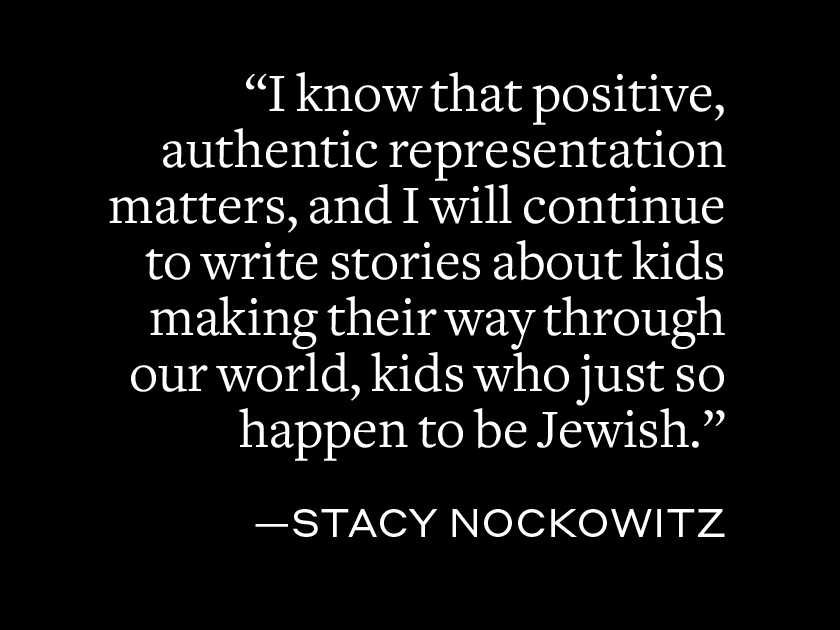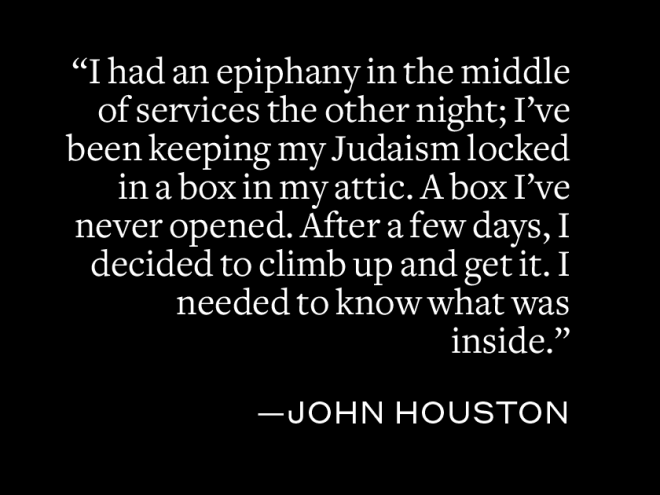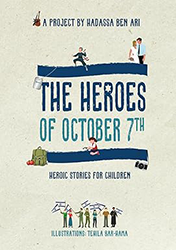
This piece is part of our Witnessing series, which shares pieces from Israeli authors and authors in Israel, as well as the experiences of Jewish writers around the globe in the aftermath of October 7th.
It is critical to understand history not just through the books that will be written later, but also through the first-hand testimonies and real-time accounting of events as they occur. At Jewish Book Council, we understand the value of these written testimonials and of sharing these individual experiences. It’s more important now than ever to give space to these voices and narratives.
In collaboration with the Jewish Book Council, JBI is recording these pieces to increase the accessibility of these accounts for individuals who are blind, have low vision or are print disabled.
When I boarded the plane for the 2024 National Council of Teachers of English Conference in Boston, I was anxious but hopeful about my upcoming session, which was set to take place on the final morning of the conference. I was part of a panel of five authors ready to deliver a ninety-minute presentation to teachers, literacy leaders, and librarians called United Voices: Bridging Jewish & Arab Cultures Through Children’s Literature.
By the time I landed in Boston, the panel was falling apart. Two people had pulled out entirely, and two others weren’t sure their careers would survive if the panel took place. Thirty-six hours later, the panel lay in ruins at my feet and had to be cancelled.
This, unfortunately, is where we are now.
The idea for the panel came together at a conference in 2023, when an Arab American writer and I, a Jewish American writer, talked about how children’s literature could act as a unifying force for our cultures. We thought it was a topic we could represent in a positive way, and we were in a good position to help teachers support kids in developing empathy for other cultures through books.
This Arab American writer and I were debut authors together in 2022, and our books had both been well-received. My book, The Prince of Steel Pier, had won a National Jewish Book Award. Our books were not biographical accounts or nonfiction chronicles of our people; they were novels, fictional works written for a middle grade audience of eight to thirteen-year-old kids. Our main characters weren’t paragons of flawless behavior or ideal archetypes we’d perched on pedestals of virtue and sagacity. They were regular kids who happened to be Arab or Jewish and who sometimes made bad decisions but ultimately started down their paths toward understanding themselves and their place in the world. Our books reflected our cultures’ values and ethos, which we both saw as incredibly similar to one another.
And that’s what we wanted our panel to demonstrate to the English teachers and librarians at NCTE — that children’s literature can show the common purpose and shared humanity of both the Arab and Jewish communities.
The panel originally consisted of two Arab authors and two Jewish authors. We crafted the proposal together — the abstract, the objectives, the content, and the skills. At no point in this discussion was Israel, Gaza, or the war mentioned. Our panel was not about politics; it was about children’s literature. As we said in our proposal: “Our goal as panelists will be to impart concrete strategies that audience members can take back to their students to invite cross-cultural dialogue, engage in writing assignments, foster an appreciation for reading diverse books, and more.” I thought we had articulated our purpose well, and we were all thrilled when our proposal was accepted.
Months passed. We had plenty of time to put the session together, so there was no rush.
Then the other Jewish author had to drop out for personal reasons. Though I was clearly in a better position to find a Jewish writer to replace her, one of my Arab panel mates asked a Jewish writer friend to join the panel without running the name by me or the other Arab writer. Later, when this friend had to drop out, my copanelist replaced her with another Jewish writer friend without consulting me or even telling me about it.
A change, a shift of some kind, had occurred, and I was beginning to feel the ground shake beneath my feet.
But I clung to my belief that the presentation would still be about unity and children’s literature.
Three weeks before the conference, through emails and the group’s Google Doc, this same Arab panel mate indicated that one of the big picture takeaways of the session would address the Israel/Palestine situation and the “ongoing genocide” being perpetrated by Israel. At this point, I asked a Jewish friend of mine to join the panel because it felt to me that things had turned overtly political. Several days before the conference, the same Arab copanelist was insisting that we could not hold the panel at all without addressing the war in the Middle East. We could not talk about unity without talking about what caused the disunity. This was not a political stance, this person said, but a moral one.
So if I don’t agree with you, I’m immoral? I asked in an email I wrote on the day of my departure for the conference. I also wanted to know what this panelist expected my Jewish writer friend and I to do at the session while comments with which we fundamentally disagreed were being made. I sent the email, and my plane took off for Boston. When I landed at Boston Logan International Airport, two people had withdrawn from the panel. If they couldn’t make their statements about Israel, they would not participate, they said. I was told that if I couldn’t see things their way, I would have to reckon with my own morality. Things had gone off the rails dramatically, and I was stunned.
At the conference, controversy about our panel swirled around me constantly. Palestinian writers were angry that there weren’t any Palestinian voices on the panel. Again I was stunned. When did this panel become about Israel and Palestine? How would anyone’s views on that situation be relevant to a panel about unifying Jewish and Arab voices through children’s literature? Some Arab writers saw the session as flawed from its conception because it perpetuated a divisive narrative. Is that what we were doing? With a session that had the word unity in its title?
I’m a former language arts teacher and school librarian with thirty plus years of experience in middle school education. I was fairly certain that the teachers who would choose to attend our session would want to hear about books for kids that speak to these cultures. The teachers would want to learn what they could do in their classrooms to challenge negative stereotypes and foster understanding.
By the third day of the conference, I had to tell NCTE that the panel wasn’t going to happen. A year earlier, we’d wanted to create a space where Arab and Jewish voices could have open, respectful, cross-cultural dialogue in American classrooms. But now, we couldn’t even reach that place ourselves. I’d never been so disheartened.
Criticizing Israel and its actions is not inherently antisemitic. Israelis themselves do it all the time. But here’s the thing: without even realizing it, my colleague was playing into the antisemitism that is rampant in the world right now. This copanelist was conflating Jews with Israel, and that’s a harmful viewpoint. This person was saying that you cannot talk about Jewish voices without talking about what Israel is doing. The International Holocaust Remembrance Alliance (IRHA), an organization with thirty-five member countries, including the United States, says that “holding Jews collectively responsible for the actions of the state of Israel” is an example of antisemitism. The World Jewish Congress calls this “antisemitism defined.”
I’m Jewish, and I’m an American. My books and my voice as a writer have absolutely nothing to do with what’s going on in Israel. Israel isn’t even mentioned in my novel. If you ask me to join you in denouncing the Israeli government because you believe what they’re doing is immoral, we can have that conversation. But if you ask me to do so because that’s the only way we can talk about Jewish voices in children’s literature, we’re going to have a problem.
I want to be clear on a couple of things. First, the support of the Jewish kid lit community got me through this whole ordeal. What uplifting and inspiring humans they are! I love them all. Second, I have nothing but respect for all of my fellow panelists. I respect their writing, and I respect their viewpoints. But I will not be intimidated or made to feel morally deficient because I disagree with them.
I wanted to talk to teachers about children’s literature because I believe so strongly in the positive effect that diverse stories can have on kids’ lives. I know that positive, authentic representation matters, and I will continue to write stories about kids making their way through our world, kids who just so happen to be Jewish.
If any teachers, librarians, authors, or advocates want to discuss Jewish representation in children’s literature with me, I’m here for it. Please get in touch with me. Let’s talk.
The views and opinions expressed above are those of the author, based on their observations and experiences.
Support the work of Jewish Book Council and become a member today.
Stacy Nockowitz is a retired middle school librarian and former language arts teacher with 30+ years of experience in middle grade education. Her debut middle grade novel, The Prince of Steel Pier (Kar-Ben), won the 2022 National Jewish Book Award and was named a Sydney Taylor Book Award Notable Book for 2023. The Prince of Steel Pier was a PJ Our Way selection for October 2022. Visit her website at: www.stacynockowitz.com.



